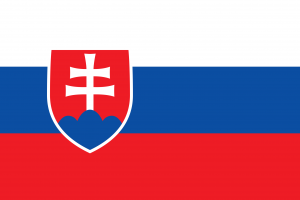Language/Slovak/Vocabulary/Holidays-and-Celebrations
Slovakia is a country with many unique and colorful celebrations throughout the year. These celebrations mark important occasions on the calendar and are accompanied by traditional foods, music, and dance. In this lesson, we will learn vocabulary related to some of the most important holidays and celebrations in Slovakia.
Holidays
Here are some of the most important holidays in Slovakia:
- Template:Lang - Day of mutual respect among nations (January 22)
- Template:Lang - Feast of the Baptism of the Lord (January 6)
- Template:Lang - Valentine's Day (February 14)
- Template:Lang - Easter (March/April)
- Template:Lang - Labor Day (May 1)
- Template:Lang - Victory Day (May 8)
- Template:Lang - Mother's Day (May)
- Template:Lang - Children's Day (June 1)
- Template:Lang - Corpus Christi (June)
- Template:Lang - Slovak National Day (July 17)
- Template:Lang - Assumption of Mary (August 15)
- Template:Lang - Constitution Day (September 1)
- Template:Lang - All Saints' Day (November 1)
- Template:Lang - Struggle for Freedom and Democracy Day (November 17)
- Template:Lang - Christmas (December 24-25)
- Template:Lang - New Year's Eve (December 31)
Celebrations
In addition to holidays, Slovakia also has many traditional celebrations throughout the year. Here are some of the most popular:
Fašiangy
Fašiangy is a carnival-like celebration that takes place in the weeks leading up to Lent. It is known for its colorful costumes, parades, and music. Some of the traditional foods associated with Fašiangy include šišky (doughnuts), fánky (small pastries), and klobása (sausage).
Veľká noc
Veľká noc, or Easter, is one of the most important celebrations in Slovakia. Traditionally, Slovaks paint Easter eggs with intricate designs and colors. They also prepare Easter baskets filled with food, such as ham, bread, and eggs. On Easter Monday, boys and men go from house to house, sprinkling the girls and women with water and hitting them with decorated willow branches in a tradition called šibačka. In return, the girls and women give them Easter eggs and other treats.
Mikuláš
Mikuláš is a celebration that takes place on December 6th. It is named after Saint Nicholas, who visits children to reward them for good behavior. Mikuláš is often accompanied by an angel and a devil. The angel rewards good children with sweets and small gifts, while the devil punishes bad children with a lump of coal.
Vianočný beh
Vianočný beh, or the Christmas run, is a popular event that takes place in many Slovak cities and towns. Participants dress up in Santa Claus costumes and run through the streets, often with accompanying music and entertainment.
Silvester
Silvester, or New Year's Eve, is a night of celebration and fireworks. Slovaks often gather with friends and family to eat, drink, and watch fireworks together.
Vocabulary
Here is some vocabulary related to holidays and celebrations in Slovakia:
| Slovak | Pronunciation | English |
|---|---|---|
| Template:Lang | /deɲ ˈvzaːjɔmɲɛj ˈutstsɪ ˈmɛzɪ ˈnarɔdnɔʃtjami/ | Day of mutual respect among nations |
| Template:Lang | /ˈvɛʎkaː nɔts/ | Easter |
| Template:Lang | /ˈʃiʃki/ | Doughnuts |
| Template:Lang | /ˈfaːŋki/ | Small pastries |
| Template:Lang | /ˈklobaːsa/ | Sausage |
| Template:Lang | /ˈʃibaːtʃka/ | Tradition of boys and men going from house to house, sprinkling the girls and women with water and hitting them with decorated willow branches on Easter Monday |
| Template:Lang | /ˈmikulaːʃ/ | Saint Nicholas |
| Template:Lang | /ˈvjaɲɔtʃniː bɛx/ | Christmas run |
| Template:Lang | /ˈsilvɛstɛr/ | New Year's Eve |
I hope you enjoyed this lesson on holidays and celebrations in Slovakia. By learning more about Slovak culture and traditions, you will gain a deeper understanding of the language and the people who speak it. Keep practicing and don't forget to have fun along the way!

